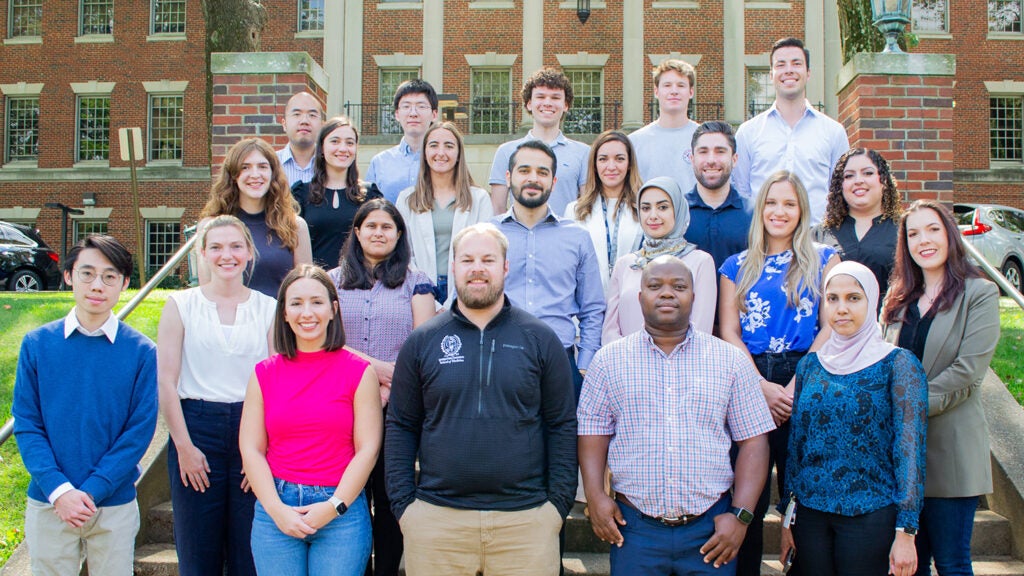Research Funding
Our students have been successful in securing prestigious awards to support their research. Learn more about their achievements and their advice for applicants.
External Fellowship & Award Recipients33 Credits
Full-Time
The Georgetown University Tumor Biology Ph.D. program provides doctoral students with an excellent research environment and interdisciplinary training for a career in cancer biology research.

Ph.D. students in Fall 2023
Coursework in the first and second year of the Tumor Biology Ph.D. training program provides students with a solid understanding of the cellular, molecular, biochemical and pathobiological basis of cancer, combined with training in research methodology and analytical and statistical techniques. With the program based in the NCI-designated Lombardi Comprehensive Cancer Center, there is a strong emphasis on the clinical-translational aspects of cancer biology, with courses on the basis and application of current and developing therapeutic strategies, participation in clinical conferences, and health disparities.
Students participate in laboratory-based research from the start of the program, with laboratory rotations over the summer and throughout the first and second semester so that they can find a laboratory in which to conduct their thesis work as soon as possible.
Students are required to complete 33 credits with at least a B average. Visit Ph.D. Courses for more information about the required courses and electives.
TBIO 9985 TBIO Lab Rotation – Summer
TBIO 9986 TBIO Lab Rotation – Fall
TBIO 9987 TBIO Lab Rotation – Spring
All students follow a uniform format for this examination, which typically comes after spring semester of the first year. It is a written and oral exam that assesses students’ skills in critical thinking, experimental design, and application of learned knowledge.
Success on the comprehensive examination is required to continue participation in the program. Once students pass the exam, they are in thesis research.
Students in their third year (or M.D./Ph.D. students in their second year) write and defend a thesis proposal before a committee consisting of their dissertation mentor, three (3) program faculty members, and an outside reader. This should be completed within one year of passing the comprehensive exam, by the end of Summer 3. The Tumor Biology Oversight Committee must approve the student’s Thesis Committee.
Students are required to meet with their Thesis Committee every 6 months and complete the Ph.D. Thesis Committee Report for each meeting.
Upon completion of a thesis project, a written dissertation must be approved by the student’s Thesis Committee.
The final stage of graduate training involves an oral presentation of the thesis. In attendance will be the Thesis Committee, program members, and interested Medical Center personnel.
Get documents for the TBIO Paper Reading Bootcamp.
A dual doctorate program designed for students interested in careers as physician-scientists.

Our students have been successful in securing prestigious awards to support their research. Learn more about their achievements and their advice for applicants.
External Fellowship & Award RecipientsOur students benefit from the services of the Biomedical Graduate Education career office, including one-on-one advising, skills workshops, leadership programs and more.